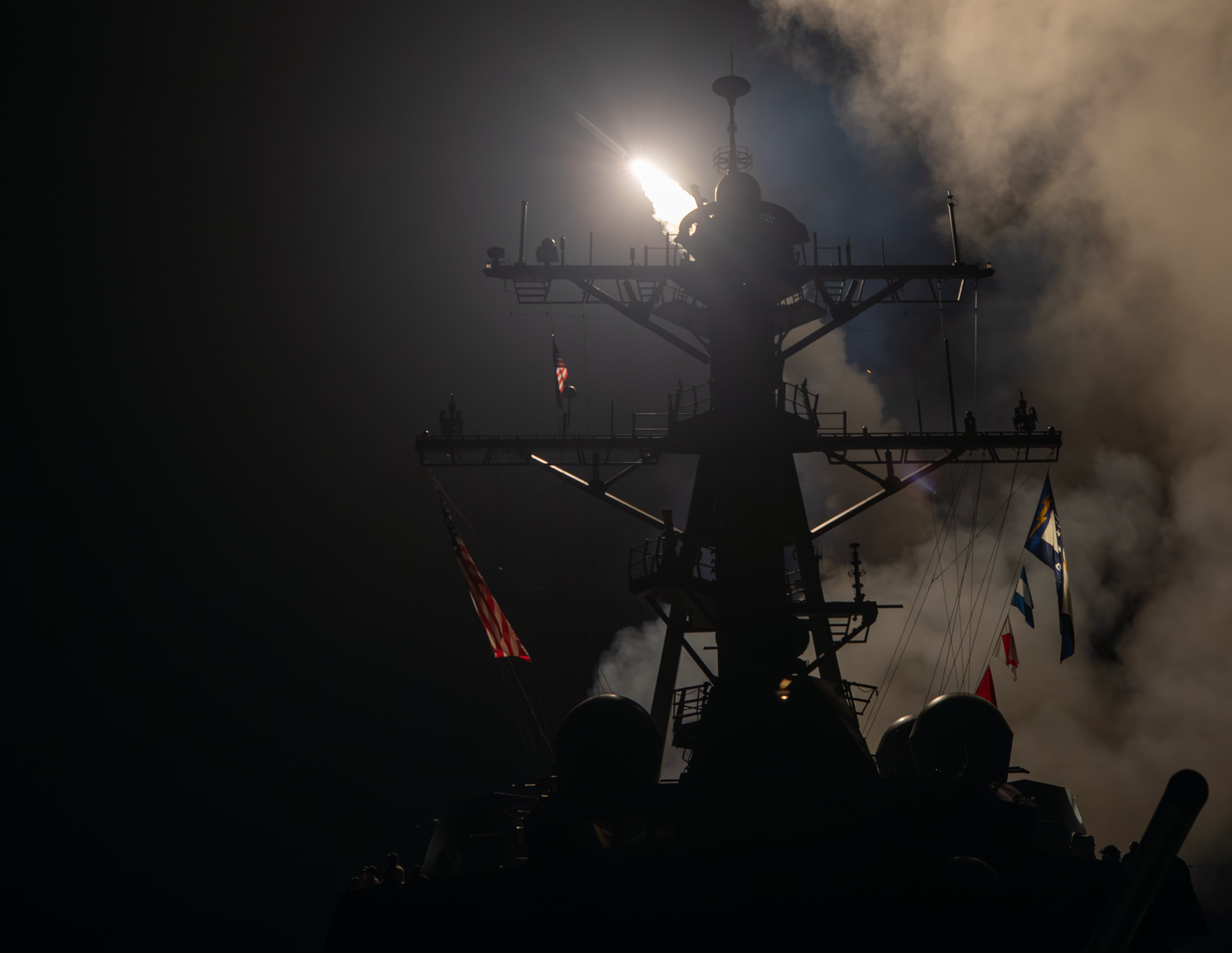
U.S. forces in the Middle East struck two Houthi anti-ship missiles that were on the ground but prepared to launch toward the Red Sea, according to a Thursday Central Command release.
The most recent U.S. strikes mark the fifth day of strikes between the U.S. and Houthi forces as tension in the Red Sea continue to mount. The U.S. first launched a strike with the United Kingdom and other allies’ support on Jan. 11. Since then the U.S. has continued to launch strikes against Houthi weapons and infrastructure, while the Houthis have targeted naval and commercial ships in the Red Sea.
The latest strikes on the anti-ship missiles were conducted in self-defense, according to the CENTCOM release because the missiles were potentially aimed at U.S. ships. The release did not specify if the missiles were cruise or ballistic. While the release said 18 U.S. units were involved in the strike, it did not specify the forces.
The Houthis launched two anti-ship ballistic missiles at tanker M/V Chem Ranger, which according to the Central Command release is owned by an unnamed U.S. company and operated by a Greek company. The tanker is flying under a Marshall Islands flag.
The missiles did not strike the ship, and the crew reported seeing them fall into the water, according to the release.
Although the Houthis and U.S. have engaged in strikes against each other for nearly a week, the Department of Defense continued to repeat that the conflict between Israel and Hamas has not spread beyond Israel and the occupied territory.
“What’s happening in Gaza is – despite what the Houthis say – is very different from what they’re doing,” Deputy Pentagon Press Secretary Sabrina Singh told reporters Thursday. “Fifty nations, some of which have no geographic location or connection to the Middle East, are being attacked by the Houthis.”
The U.S. strikes have downgraded the Houthi’s ability to fire at ships in the Red Sea but has not completely wiped out the Houthi’s ability, Singh said. The retaliatory strikes were expected following the Jan. 11 strikes.
“Our initial assessments are that we’ve been very successful and that we’ve been able to destroy pretty much all of the targets that we hit,” Singh said. “So again, that’s one less capability that’s one less missile that they’re able to use tomorrow.”
The Pentagon had not classified Houthi strikes as attacks on Navy ships up until Jan. 10 when USS Laboon (DDG-58), USS Gravely (DDG-107), USS Mason (DDG-87) and F/A-18s from USS Dwight D. Eisenhower (CVN-69), along with the United Kingdom’s HMS Diamond (D34) shot down 18 one-way attack unmanned aerial vehicles, two anti-ship cruise missiles and one anti-ship ballistic missile in what the Pentagon described as a complex attack. The U.S.-U.K. strike on at least 30 Houthi targets followed the next day.
The Pentagon has instead referred to the Houthi missiles shot down by U.S. warships as self-defense, saying the ships could have been targeted but that it was unclear. Singh used the same language Thursday when describing the self-defense strikes on the anti-ship missiles.
“In some cases in the Red Sea, it’s a very narrow waterway. Multiple ships are in the area. We can’t always assess that the US was the target of that intended missile,” Singh told reporters Thursday.
Singh told reporters that Houthi strikes on ships in the Red Sea will ultimately stop when the Houthis decide to stop.
“They’re interrupting the economy,” Singh said. “They’re disrupting just commercial vessels from transiting the Red Sea. Innocent lives are being put at risk. And so we can only continue to urge them both publicly here and through other channels to stop these reckless attacks.”
The Houthis have said that the attacks will stop once Israel ends its bombardment of Gaza. Houthi leadership have also said they are only attacking ships linked to Israel, either through ownership or port visits, while Pentagon officials have said the Houthis are hitting ships and affecting commercial ship of multiple nations. Following the Jan. 11 strikes, Houthi leaders have also said they would target U.S. and U.K. ships.
“The continuation of the American-British aggression in launching raids with approximately 13 missiles last night on our country represents an insistence on continuing the aggression a week ago to protect the Zionist enemy entity, and this will not prevent our dear people from continuing support operations for the Palestinian people and the steadfastness of Gaza,” Houthi spokesperson Mohammed Abdulsalam said on social media site X. “We affirm the freedom of maritime navigation for all ships of the world except for the ships of the Zionist enemy heading to the ports of occupied Palestine.”





